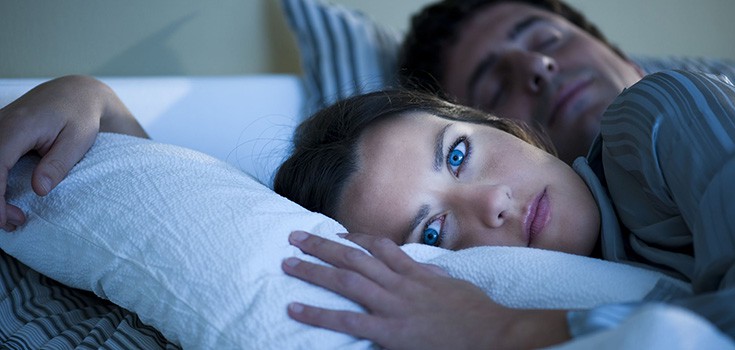Sleepless America: Over $63.2 Billion Lost Annually to Lack of Sleep

Insomnia, the most common sleep-related complaint, is often overlooked as an uncommon issue with no global consequence. But research from Harvard Medical School has already shed some light on the effects of insomnia on the world economy, and the statistics are quite startling. The average American misses 11.3 days each year from work because of some type of insomnia. Furthermore, insomnia-related lost time costs 63.2 billion dollars annually in the United States.
Types and Some Causes of Insomnia
Most adults require at least 7-8 hours of sleep each night in order to function their best. Unfortunately, we live in a very hectic culture, and many people undervalue the benefit of getting a good night’s sleep. Between 30% and 50% of individuals suffer from insomnia at some point and over 10% have insomnia issues for a long duration of time. Insomnia strikes both young and old, though generally more women than men are burdened with this problem.
Insomnia can be caused the result of a number of factors, including depression, anxiety, chronic stress, medications, asthma, reflux, cancer, chronic pain, sleep apnea, technology and sleeping with the light on, and narcolepsy, to name a few. Unfortunately many of these insomnia causes may actually worsen from lack of sleep, such as depression or weight problems becoming worse as the sleepless nights pass.
There are three classes of insomnia have been identified relative to the length of time that the sleeping problems have existed. Transient insomnia is when sleeping problems last for under seven days, short- term insomnia lasts for more than seven days but less than 21 days, and long-term insomnia endures for more than 21 days.
Cost of Insomnia
Not only is there a risk of medical problems with insomnia, but the cost of lost days of employment and performance issues appears to be a mounting concern. To find out more, data from the American Insomnia Study was analyzed by researchers at Harvard Medical School, where the sleeping patterns and work performance of over 7,000 employees were studied. The results of the data indicated that 23% of the participants had some form of insomnia. Workers that were 65 years and older had the lowest rate of insomnia, while sleep problems plagued 27% of women and 19% of men.
Treating insomnia is not cheap; drugs can cost up to $200 per year, and another $1,200 may be spent on behavioral therapy. But lost days at work and reduced performance are a serious concern in our sleep-deprived nation. Researchers at Harvard suggest that some sort of screening and treatment program should be used to help curtail some of the economic burden caused by this problem. This in not, however, an easy task.
If you’re having sleeping issues, it should be noted to steer clear of sleeping pills. Sleeping medication can lead to a higher risk of cancer and premature death; one study found that those taking prescription sleep aids were 35 percent more likely to develop cancer during the study period than those not taking any. While it may seem unpractical to some, herbal sleep remedies could be the answer to sleeping issues. Additionally, focusing on your breathing while going to sleep instead of letting your mind wander is a great way to fall asleep more easily.
Additional Sources:
